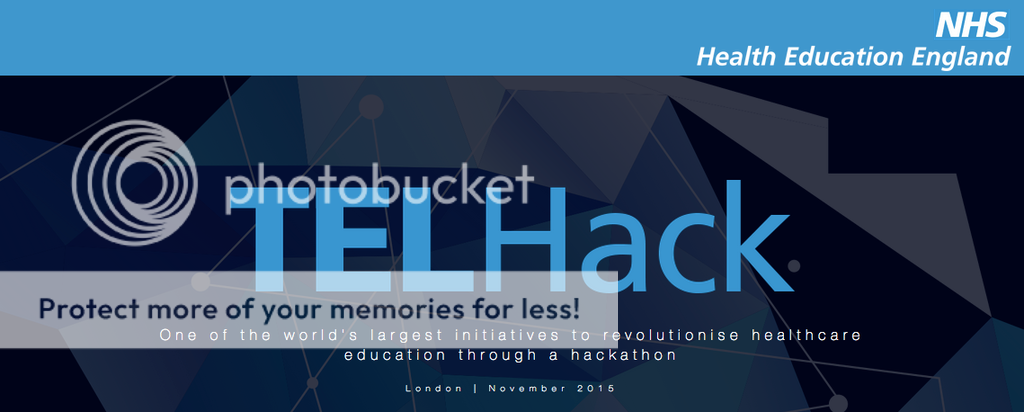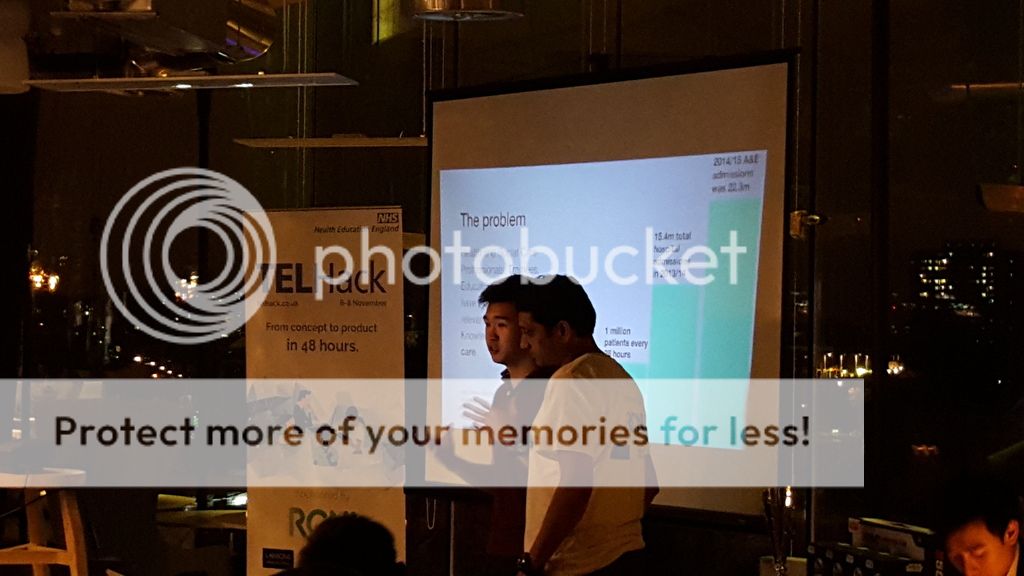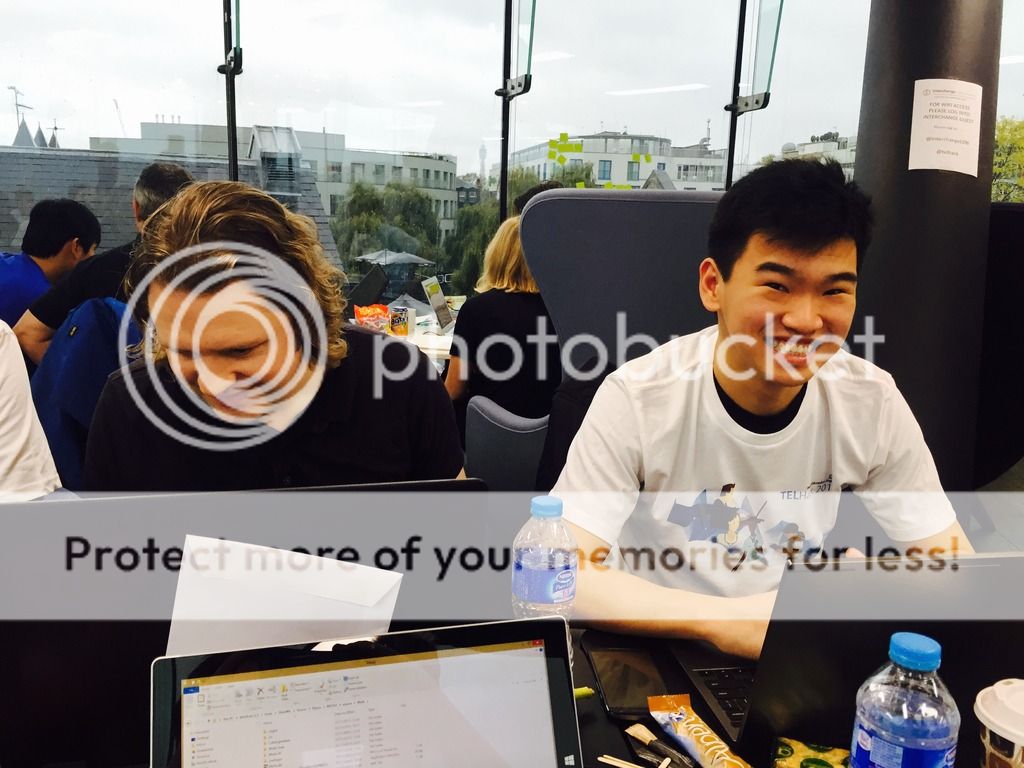5 Important Lessons From My First Hackathon
"Let's do this!"
It has been just over a couple of weeks since my first hackathon that I participated in. To put simply, a hackathon is an event where people (programmers, designers, etc.) come together to turn ideas into reality.
TELHack, which took place in London from the 6th to 8th of November, is a hackathon aimed at transforming healthcare education. In case you were wondering, the "TEL" in TELHack stands for Technology Enhanced Learning.

Looking back, there was plenty to take away from the hackathon. So, here's 5 of the most important lessons I learnt from my experiences at TELHack.
1. Default to open.
The concept of default to open is woven in the DNA of hackathons. Being default to open means rather than starting from a point where you choose what to share, start from a point where you chose what not to share. Hackathons are an environment which simply thrives on collaboration and openness. Having heard of this concept is one thing, but experiencing it first-hand was entirely different and it blew me away.
Want to know if your idea would be worth working on during a 48-hour period? After sharing my idea about virtual reality (VR) to work on during the weekend, a software developer advised that it'd be wise to consider something else, mostly because there weren't many developers experienced with VR. Not sure what a business model canvas is? Ask the experts who have been involved in numerous startups or have a background in business.
Speak to the people you are surrounded by and share your opinions and problems with them! What better way to get your questions answered or your problems solved by individuals who have/had similar experiences. A hackathon is a friendly event, so meet as many people as possible, make friends, and learn.
2. Don't take your ability to learn for granted!
Speaking of learning, I didn't realise how much one could learn in just 48 hours. My experience in coding was fairly limited and even at TELHack, I didn't write much code. But I was surrounded by people who read and write code for a living. I was able to learn through seeing how they did what they did and doing a little myself. That crash course in Python during TELHack is something that will definitely come in handy.
Learning about building scalable businesses was another matter that I had to get my hands dirty in. Coming from a background in healthcare, my experience in business was fairly limited. Through support and advice from Alejandro, one of the lead organisers, we managed to get a business model going. I've never learnt so much in one night, by researching about getting the first users, scaling a business, and how to generate money.
How do companies like Google, Facebook, Uber, Airbnb, or Palantir disrupt an industry? How did they start out in the beginning before their businesses started growing? And lastly, how is our prototype more valuable from anything out there already? Those were some questions that we had to learn to ask and answer in less than 12 hours before our final pitch!
A large part of my learning came in the form of actually doing it. Most of the time, doing something for the first time will result in failure. So, the best way to learn in this instance is to fail faster and quickly learn from mistakes; adopt the "shoot, ready, aim" mantra.
3. Money is important.
The rest of my team found it uncomfortable to discuss about the business-end of things. Again, Alejandro managed to help out in this area by explaining why it's important to have a viable business model by the end of the hackathon.
Essentially, what he said was, "It's okay to not want to think about making profits. But not thinking about making any money at all is crazy! Why? Because every business, regardless of their size has to earn some money. Not profiting is fine, but you must make enough money to keep going and sustain the business."
That advice really hit me. I now understand better why money is important. Don't get me wrong, the purpose of doing anything shouldn't be based on making profits. Making profits is a result, a side-effect if you wish. However, not thinking about to sustain a business, even when just starting out, would be madness.

4. Remember to sell the why!
We had around 48 hours to come up with a working prototype by the end of TELHack. It was too easy to focus on building the prototype, in my team's case, a clinical knowledge respository. That was the "what".
Looking back, our prototype functioned well and we clearly communicated its features and how it worked. We even managed to explain how it was different compared to other products already in the market. Stumbling across Simon Sinek's TEDTalk, I finally realised what was lacking.
We didn't communicate the "why" part of our pitch well enough; it wasn't as inspiring as should be! From that TEDTalk, Mr. Sinek said "If Apple were like everyone else, a marketing message from them might sound like this: We make great computers. They're beautifully designed, simple to use, and user-friendly. Want to buy one?". That sounds incredibly "meh", doesn't it?
Our final pitch at TELHack was decent but there is always room for improvement. In the future, I'd personally would like to use a better approach and explicitly highlight why a prototype was built for in the first place.
5. Enjoy and have fun.
Sure, most of us at TELHack didn't get much sleep during the hackathon. Yes, it was also stressful and daunting to come up with a working prototype by the end of it all. But at the end of TELHack, I can tell you there wasn't a single person in the room who didn't have a huge smile on their face. From the participants to mentors and organisers, everyone enjoyed themselves and had a great time.
I took part in Python crash course and tried some yoga. I met and exchanged ideas with lots of other healthcare professionals, mentors, software developers, and designers. That was all on top of making a difference in healthcare education.
Working on cool things that matter is highly addictive. Hours and hours flew by when I was preparing a business model, writing code, and helping out my team whenever I could. Hackathons are designed to gather like-minded individuals to solve large problems. It's a little like trying to assemble the Avengers.
At the end of the day, nothing is worth doing if you aren't having fun. Also, time spent doing something you enjoy, is definitely not time wasted.

At the start of TELHack, we said "let's do this!" and at the end, we did it. From concept to prototype in 48 hours, my first hackathon was definitely one to remember!